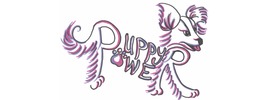|
I just came across this TEDtalk and thought it'd be great to share it and put a dog trainer's perspective on it.
You can watch it here: https://youtu.be/w-HYZv6HzAs According to Dr. Josephe, who is a soccer coach at Ryerson University, in his TEDtalk, entitled “The Skill of Self-Confidence”, the first and most important skill to look for in an athlete is their self-confidence. Self-confidence is one’s ability to believe in themselves despite adversity and not give up. This is an important skill to have in our everyday lives, and I would argue that it's an important skill to instill in our dogs. I challenge myself daily to instill this skill in every dog handler I teach. In a world of people who are quick to point out failure and offer discouragement, it is important to remain positive and persevere to reach your goals whether you’re doing a sport, training a dog, or trying to succeed in life in general. Using the quote, “I am the captain of my ship and the master of my fate,” he reminds the audience that we are the only people who can decide if we’re going to accept failure or push through and not give up until we succeed. We also make choices about the way we influence one another or our dogs. There will be times where it is difficult, and I liked his idea of having a brag sheet to pull out to remind yourself of your successes when you’re going through the storm. Maybe you're working on reactivity and you're finding that your dog is reacting less at certain distances now or that you're able to get them calm and engaged with you faster after they do have an outburst. Celebrate the small successes, write them down and keep them as a reminder for times that you get discouraged. As well, he reminds the audience not to keep the company of people who try to tear them down. This is important because your self-confidence can be influenced by those around you. If people start to influence you enough to make you believe you can’t do something, then you won’t (this is explained by the self-fulfilling prophecy). Part of what I love about Reactive classes is seeing my clients encouraging and helping eachother. There is nothing more rewarding as a dog trainer than getting people helping one another to set their dogs up for success and see the results of their efforts week by week. You wouldn't believe how many people are scared to bring their dogs to Reactive class because they're worried that their dog will be the worst behaved dog and are concerned about what others will think. I remind them that we are all working on this together, and I am so proud of how encouraging my clients are to one another. In keeping with the idea that self-confidence is easily influenced by others, when we are teaching or coaching others (human or canine), we need to keep in mind that positive reinforcement goes a lot further than criticism and focusing on mistakes. The goal is to teach and encourage while building self-confidence in others. Dr. Josephe mentions in a team setting that pointing out the individual who did things well and building that player up, while discussing what was right about what they did rather than singling a player out for doing something wrong is a lot more constructive. This could easily extend to parent-child relationships, relationships with a spouse/partner and dog-handler relationships as well. Most people find it very easy to focus on what went wrong and will just focus on trying to fix things. While continuous improvement is important to growth, the way in which it is encouraged makes a huge difference. Pointing out what someone did right can help build their self-confidence and put them in the right frame of mind to take on a challenge and do better. If you point out enough things someone does wrong, they will become discouraged and will want to give up. This goes for dogs as well as people. When I am teaching families how to train their dogs, I find a big part of my job is getting the parent to help focus on the things the kids do well with their puppy and building from that rather than nit-picking all the things they do wrong. Kids are SO much more responsive to positive reinforcement and keeping it fun and light greatly improves their participation and engagement. The very same applies to training dogs. A dog who is continuously corrected learns much slower and is hesitant to try something new/afraid to make a mistake, often exhibiting avoidance behavior and an unwillingness to work with its handler. A dog who is constantly being set up to do the right behavior and has a handler who is quick to catch and reward them for doing that right behavior is eager to learn and display the right behavior more. I often challenge owners to teach their dogs the same way they would want to be taught. Find a distance your dog CAN succeed and build from there. Nobody wants to have someone come down on them for every mistake they make. It’s stressful and demoralizing. It’s much more productive to find a starting point where someone is doing something right and build from there.
0 Comments
Leave a Reply. |
AuthorI am a dog owner and a trainer. Every day I learn something new from my dogs and I hope to share experiences that will help people understand their dogs better. Archives
March 2024
Categories |
© Samantha Dejong, B.Sc, CCUI, CTB.ccs, IPDTA-CDT
